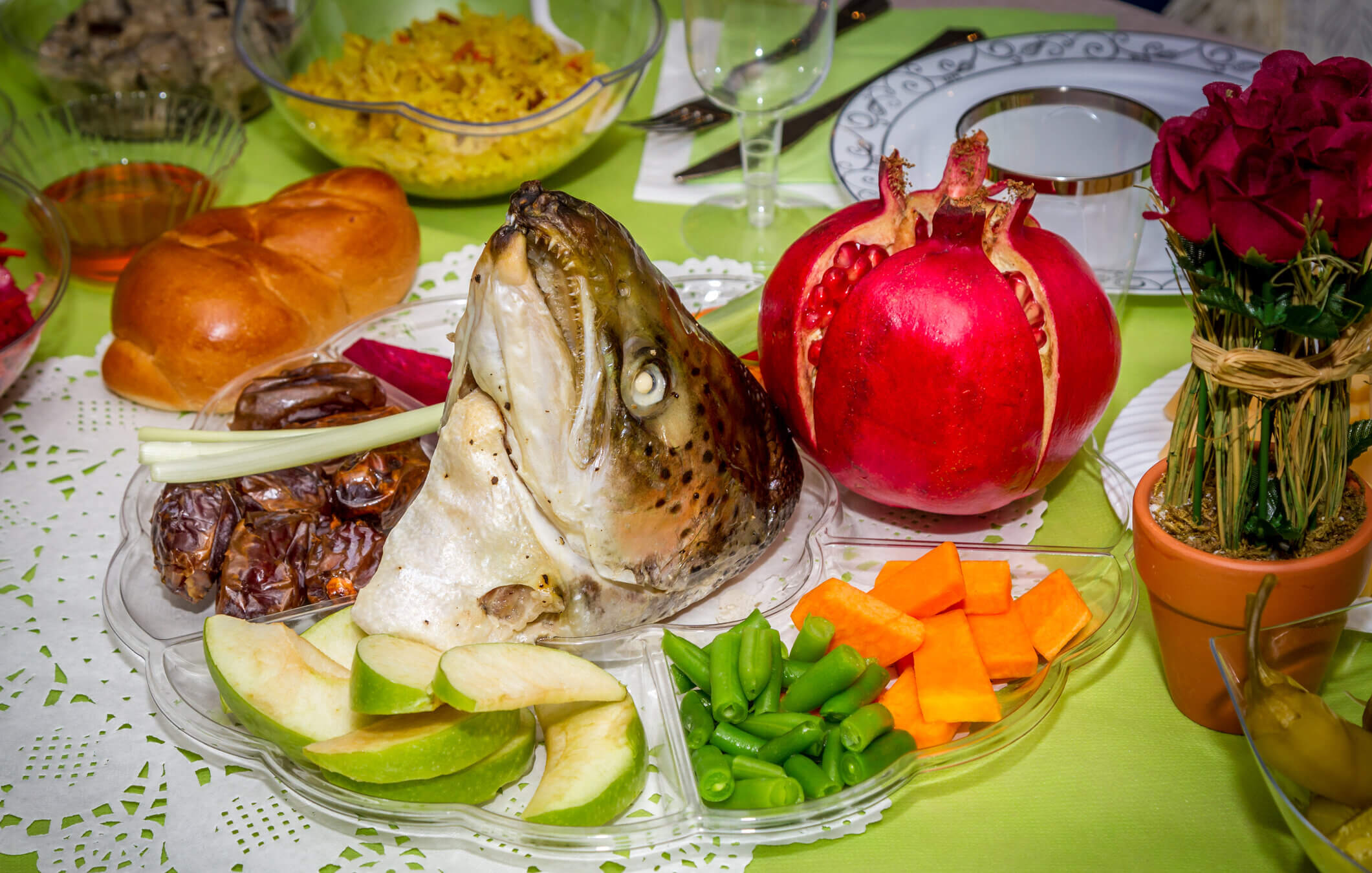What foods are in a Rosh Hashanah Seder? Take our quiz to find out
Which fruits and vegetables symbolize what hopes and blessings for the Jewish new year?

Doesn’t the Rosh Hashanah seder look fun, fresh and appetizing? Just ignore the fish head glaring at you from the middle. Courtesy of iStock
Everyone knows about the Passover Seder. But did you know that Jews eat symbolic meals for lots of holidays — including Rosh Hashanah?
The custom is most common among Sephardic or Mizrahi communities, but it’s been embraced by Jews of all backgrounds in recent years. It features a full plate of fruits and vegetables, each of which represents wishes or blessings for the new year.
Some of the symbolism springs from the food’s shape or color — but a lot of the meaning behind this ancient Talmudic tradition springs from puns made between the fruit or vegetable’s Hebrew and Aramaic name and another word.
That means it can be pretty hard to remember what means what on the plate. But don’t let that stop you from guessing in the quiz below — even if you might need to be a Talmud scholar to get 100%. I’ll give you a hint: As with many traditions springing from ancient times, there’s an emphasis on smiting enemies. But if the quiz inspires you to create a Seder plate of your own, feel free to reinterpret the symbolism; it’s Jewish tradition, after all.
And if you realize, after taking these quizzes, that you need to brush up on your knowledge before you head to shul or a holiday meal — or you’re just curious to know more — take a look at some of our guides to the holidays below. Or try our other high holiday quizzes, on holiday greetings here and basic High Holiday trivia here.
A message from our Publisher & CEO Rachel Fishman Feddersen

I hope you appreciated this article. Before you go, I’d like to ask you to please support the Forward’s award-winning, nonprofit journalism during this critical time.
We’ve set a goal to raise $260,000 by December 31. That’s an ambitious goal, but one that will give us the resources we need to invest in the high quality news, opinion, analysis and cultural coverage that isn’t available anywhere else.
If you feel inspired to make an impact, now is the time to give something back. Join us as a member at your most generous level.
— Rachel Fishman Feddersen, Publisher and CEO
























